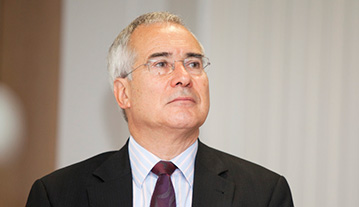

Responding to the publication today (12 December 2015) of the final draft of the Paris Agreement on climate change, Nicholas Stern, Chair of the Grantham Research Institute on Climate Change and the Environment and ESRC Centre for Climate Change Economics and Policy at the London School of Economics and Political Science, and President of the British Academy, said:
“This is a historic moment, not just for us and our world today, but for our children, our grandchildren and future generations. The Paris Agreement is a turning point in the world’s fight against unmanaged climate change, which threatens prosperity and well-being among both rich and poor countries. The Agreement creates enormous opportunities as countries begin to accelerate along the path towards low-carbon economic development and growth.”
“The commitment to limit the rise in global warming to well below 2 centigrade degrees, and to pursue a limit of 1.5 centigrade degrees, recognises the enormous risks we face from growing levels of carbon dioxide and other greenhouse gases in the atmosphere. And it acknowledges that the world will need to reach net zero annual emissions of greenhouse gases in the second half of the century. Importantly, the Agreement takes into account that current pledges for emissions limits in 2030 fall short of the collective ambition required and so it includes a commitment by countries to review every five years their efforts to reduce annual emissions of greenhouse gases and to ramp up their emissions cuts. And it recognises that that rich countries are expected to mobilise more financial support to help poor countries make the transition to a low-carbon economy and become more climate-resilient. Increased investments will be needed, particularly in infrastructure, and the multilateral financial institutions, such as the World Bank and the regional development banks, must play a leading role in scaling up finance and bringing down the costs of capital.
“National, and local governments, cities and businesses must now raise their efforts to match the ambition of this Agreement. Cities and businesses have been strongly represented at the Paris climate change summit and have played an important role in urging governments to achieve a strong agreement, and emphasising the important role of innovation in creating a low-carbon economy. This Agreement, together with the Sustainable Development Goals, should allow countries to overcome both climate change and poverty, the two defining challenges of our generation. Now is the time for us to seize the opportunity of a brighter, low-carbon and climate-resilient future.”
For more information about this media release, please contact Bob Ward on +44 (0) 7811 320346 or r.e.ward@lse.ac.uk.
NOTES FOR EDITORS